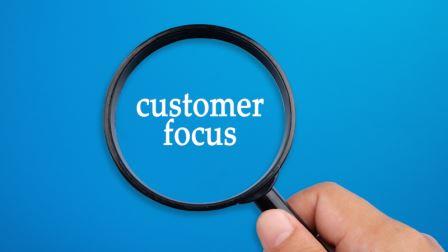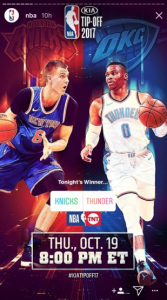McKesson exec Rohit Prabhakar’s personal experience gives an added meaning to “customer life cycle.”

“Customer obsession” is one of the most popular buzz-phrases, denoting an approach that places customer satisfaction and a great customer experience above everything.
The reason: a happy customer can become a loyal customer. Per Bain & Company, a five-percent increase in customer retention can boost profits from 25 to 95 percent.
As Head of Digital Marketing Strategies and Marketing Technologies for medical distributor McKesson, Rohit Prabhakar is very aware of how digital marketers try to satisfy him as a customer.
An essential component of Prabhakar the customer (who is speaking at our MarTech conference next week) is that he and his wife have two children, aged six years old and six months old.
“There are lots of sites where you sign up” when you have a newborn, he observed. Most of them, he added, just send generic discount coupons to get you to buy baby-related products.
“But there is one site,” he said, preferring to leave it unnamed, where his wife signed up nine months before the youngest baby came. They subsequently sent regular emails timed to the parents’ journey through the pregnancy, continuing now in the early months of the child’s life.
“My wife is glued to the emails,” he noted, since they reflect her rapidly changing needs and frame of mind, and, connected by their timely relevance, she pays attention to the site’s offers of products.
“They have an emotional engagement” that speak to his wife’s states of mind, Prabhakar said, a synchronicity that supports his first rule for customer obsession: “Know your customer.”
Or, as Forrester Research puts it:
“Simply put, customers expect consistent and high-value in-person and digital experiences. They don’t care if building these experiences is hard or requires a complex, multifunction approach from across your business. They want immediate value and will go elsewhere if you can’t provide it.”
For the customer-obsessed, it’s all about a high level of customer experience to keep the customer happy.
This focus, Prabhakar said, can drive how your choose your marketing technologies. With this orientation, you can better see what you’ll need. At the highest level, he said, they are:
- ways to get data about your customers’ needs, preferably in alignment with their changing life needs;
- ways to bring the data together into a single portrait;
- content that addresses their needs, and the means to re-use it;
- tools — such as content management systems, social management or email marketing — to deliver the content at the right time;
- personalization and A/B testing; and
- ways to get customer feedback from social communities and elsewhere, since customer satisfaction-focused brands don’t stop at sales.
There are lots of ways to visualize how experience-obsessed brands can satisfy their customers throughout the “customer life cycle,” a term that often refers to a customer’s progression through the funnel.
But in Prabhakar’s case, viscerally understanding “customer life cycle” only required a new baby.
(Some images used under license from Shutterstock.com.)
Marketing Land – Internet Marketing News, Strategies & Tips
(158)









